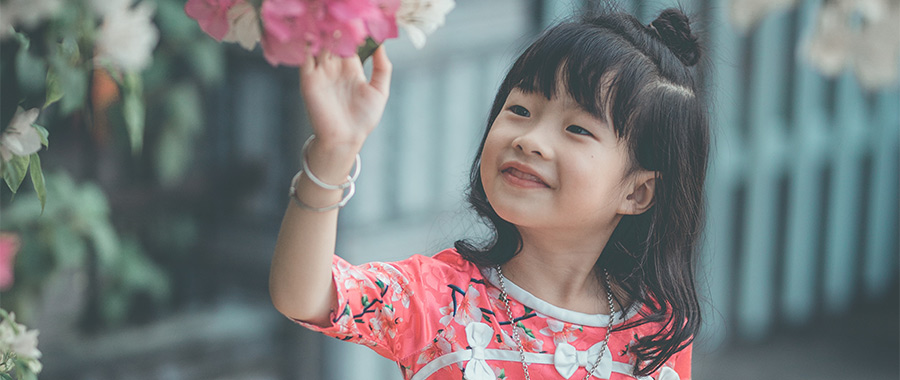The concept that every child is born pure and noble is not merely an uplifting aphorism but a profound tenet deeply embedded within the Bahá’í teachings. This principle invites us to reflect on the inherent perfection of the human spirit at birth and challenges societal predispositions that suggest otherwise. Through this exploration, we may grapple with the profound implications of this belief and the responsibilities it entails for individuals and communities alike.
At the heart of the Bahá’í perspective lies the assertion that each child enters the world with an innate potential for goodness, virtue, and spiritual nobility. This notion serves as a counterpoint to views that characterize children as inherently flawed or prone to malevolence. The Bahá’í teachings insist that human beings, by nature, are not beings of instinctual malevolence but rather beings of light, reflecting the divine attributes of compassion, empathy, and righteousness.
A notable observation about this teaching is its foundational role in shaping educational and societal frameworks. If we accept that every child is born pure and noble, the implications for how we raise and educate children are substantial. The assumption predicates a nurturing approach to parenting and pedagogy, one that places emphasis on cultivating the positive qualities already inherent within the child rather than attempting to correct presumed faults. This orientation promotes an environment wherein love, kindness, and understanding flourish, ultimately fostering an atmosphere conducive to holistic development.
Moreover, this perspective encourages an examination of how cultural narratives often define childhood. Many cultures underscore notions of originality and purity, creating an idealization of innocence. However, such ideals can also perpetuate unrealistic expectations and generational cycles of judgment. Instead, the Bahá’í teaching invites a more nuanced understanding, motivating caregivers and educators to look beyond superficial behaviors and recognize the noble nature of the child’s essence. The social implications are staggering; an educational system attuned to the inherent nobility of each child becomes a vessel for transformation, promoting social harmony while dismantling stigmas that surround youth behavior.
The quest to understand the multifaceted dimensions of purity and nobility leads us to the exploration of social justice and equity. Bahá’ís believe that recognizing the inherent dignity in every individual translates to fostering equality across various facets of society. This principle evokes a commitment to ensuring that all children, regardless of background, have access to the tools necessary to thrive. It underscores the importance of nurturing diverse talents while reinforcing the belief that every child can contribute positively to the community.
This belief also resonates profoundly with the Bahá’í overarching principle of the oneness of humanity. When viewing every child as pure and noble, one begins to appreciate the interconnectedness of individual destinies. Each child’s triumphs and tribulations echo throughout society, influencing communal growth and advancement. This interconnectedness stresses a collective responsibility to support the younger generations in realizing their full potential, reinforcing interdependence as a cornerstone of human experience.
A critical aspect of recognizing the purity and nobility within each child involves addressing social and systemic challenges that can obscure or suppress these qualities. It necessitates confronting biases that overshadow childhood experiences, many of which are influenced by socioeconomic status, race, and cultural background. The Bahá’í framework advocates for the amelioration of these systemic barriers through education and awareness, transforming societal attitudes that presume inadequacy based on superficial characteristics.
In addition, embracing the conviction that children are born with pure and noble spirits introduces a spiritual dimension to parenting and education. This belief implies that guardians and educators not only transmit knowledge but also model virtues and attributes reflective of the divine. As such, adults bear the responsibility of creating environments that foster both intellectual growth and spiritual development. This dual focus ensures that children mature into individuals capable of contributing positively and meaningfully to society.
Alongside spiritual development, emotional intelligence emerges as an essential component of nurturing a child’s inherent nobility. Understanding that every child has unique emotional needs compels caregivers to empathize and connect with their feelings, reinforcing the importance of emotional literacy. Teaching children to recognize and manage their emotions fosters resilience, an invaluable trait in navigating the complexities of life. It reinforces the Bahá’í perspective that addresses the holistic development of a child as intertwined with their spiritual and moral growth.
Ultimately, the teaching that every child is born pure and noble transcends mere philosophical discourse; it serves as a clarion call for action. Individuals and communities are summoned to create equitable systems, educational frameworks, and nurturing environments that reflect this profound understanding of childhood. This comprehensive approach cultivates a society committed to recognizing and uplifting the intrinsic worth of each child, thus engendering a more just and harmonious world.
In conclusion, embracing the belief that every child is born pure and noble is instrumental in shaping perspectives on education, society, and spiritual development. It challenges existing paradigms while encouraging a concerted effort to nurture the goodness inherent in humanity. Through this lens, we can recognize the potential within each child, transforming our collective future into one rooted in compassion, understanding, and unity.
